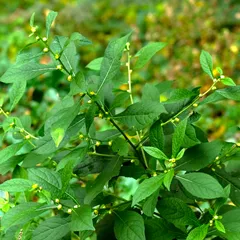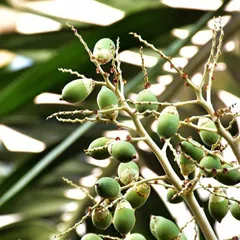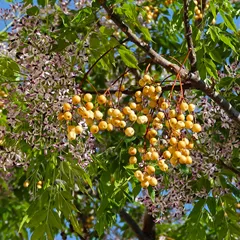He Shi
He Shi
English: Carpesium fruits
Chinese: 鹤虱
Use of He Shi (carpesium fruits) in TCM
Please note that you should never self-prescribe TCM ingredients. A TCM ingredient is almost never eaten on its own but as part of a formula containing several ingredients that act together. Please consult a professional TCM practitioner, they will be best able to guide you.
Preparation: Collects the seeds, remove impurities and dry
Dosage: 3-9g
Main actions according to TCM*: Kills parasites and alleviates pain.
Primary conditions or symptoms for which He Shi may be prescribed by TCM doctors*: Roundworm Pinworms Hookworm Tapeworm Abdominal pain due to parasites
Contraindications*: Contraindicated during pregnancy. Use with caution for these patients with weak constitution. Potential side effects include tinnitus and transient abdominal pain.
Common TCM formulas in which He Shi is used*
Hua Chong Wan
Source date: 1148 AD
Number of ingredients: 5 herbs
Formula key actions: Kills intestinal parasites.
Conditions targeted*: RoundwormAscariasis and others
He Shi is a king ingredient in Hua Chong Wan. Like the name indicates, it means it has more power than other ingredients in the formula.
In Hua Chong Wan, He Shi is an important herb for expelling many types of parasites, especially roundworms.
Key TCM concepts behind He Shi's properties
In Traditional Chinese Medicine (TCM), He Shi belongs to the 'Herbs that expel parasites' category. Herbs in this category are used to treat roundworms, tapeworm, hookworm and other intestinal parasites. In most cases, these herbs should be combined with other herbs to assist their action such as 'Purgative herbs that drain downward' or Qi tonics. Typically these herbs should only be prescribed for a short period as they often have some level of toxicity.
Furthermore He Shi is Neutral in nature. This means that He Shi typically doesn't affect the balance in your body. Balance between Yin and Yang is a key health concept in TCM. Eating too many "Hot" (Yang) ingredients can lead to an imbalance whereby one has a Yang Excess. The inverse is true as well: too many "Cold" (Yin) ingredients can lead to a Yin Excess. The Neutral nature of He Shi means that you don't have to worry about that!
He Shi also tastes Bitter and Pungent. The so-called 'Five Phases' theory in Chinese Medicine states that the taste of TCM ingredients is a key determinant of their action in the body. Bitter ingredients like He Shi tends to have a cleansing action on the body by clearing Heat, drying Dampness and promoting elimination via urination or bowel movements. On the other hand Pungent ingredients tend to promote the circulations of Qi and Body Fluids. That's why for instance someone tends to sweat a lot when they eat spicy/pungent food.
The tastes of ingredients in TCM also determine what Organs and Meridians they target. As such He Shi is thought to target the Spleen and the Stomach. In TCM the Spleen assists with digestion, Blood coagulation and Fluids metabolism in the body. The Stomach on the other hand is responsible for receiving and ripening ingested food and fluids. It is also tasked with descending the digested elements downwards to the Small Intestine.





